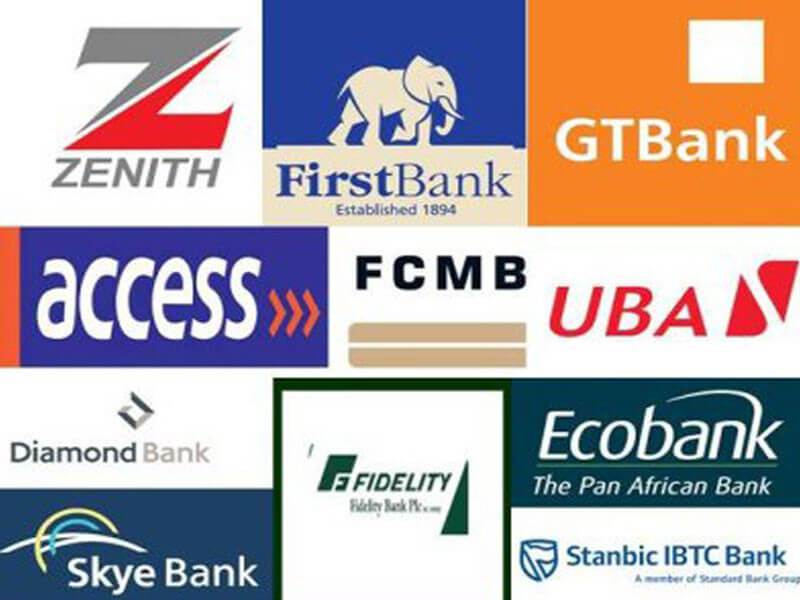- Introduce initiatives to empower women
GTBank Plc, Access Bank Plc, Standard Chartered Plc and First Bank Holding Plc, among others, have introduced several initiatives to empower women to actualize their passions.
According to a report released by McKinsey Global Institute and the Council on Foreign Relations, full gender equity could add 23% or $229 billion to the gross domestic product of the most populous black nation by 2025, the highest of any African nation.
To ensure that Nigeria’s GDP is boosted as predicted by the report, the financial institutions are using different loan facilities, which are specially designed for women, to attract their female depositors across the nation.
GTBank has several loan facilities that are specially designed for operators in industries that are largely dominated by women. Some of them are Food industry Credit, Creative Industry Financing Initiative (CIFI) and Small and Medium Enterprises Quick credit, which is aimed at financing the working capital needed for day to day needs of operators in the Education and Healthcare sectors.
CIFI is a loan scheme developed in collaboration with the Central Bank of Nigeria (CBN) to provide access to long-term and low-interest financing for entrepreneurs in the creative industry, including Fashion, Music, Movies, etc.
Access Bank is another financial institution that is determined to ensure Nigeria closes the gap of the full gender parity, as it has several facilities to empower women. They are Womenpreneur, Women Power loans and the W Initiative among others.
While the Womenpreneur itch-A-Ton is to provide financial and business skills to female entrepreneurs, W initiative was introduced in 2014 to accelerate a new and stronger wave of hitherto scanty female entrepreneurs in Nigeria.
The W power loan is a scheme designed to close the financing gap for female-owned businesses by providing access to loans and credit facilities. It is open to women whose businesses are in these sectors: Fashion, Catering/Eateries, Manufacturing, Beauty & Wellness, Hospitality & Tourism, Education, I.T and HealthCare.
Nigeria’s oldest financial institution has a facility tagged FirstGem, which specifically targets women. Every woman can open a FirstGem Account and can also migrate an existing FirstBank Account to begin enjoying FirstGem benefits
For Standard Chartered, it has Diva Club account, Borrow, Making finance work for Women and Women in Tech among others.
The Making Finance Work for Women by Women’s World Banking was introduced to address the key considerations around women’s access to financial services.
Head, Local division, Standard Chartered, Dayo Aderugbo, explained that Nigerian unit plans to give management training through a women-focused program that it has deployed in the U.S., Kenya, Pakistan and the U.A.E.
She said, “Our Nigerian business, which is aiming to increase female customers to 500,000 from 100,000 over the next two years, will also offer some women entrepreneurs’ grants to expand. We are positively optimistic we would be very successful in banking Nigerian women. There is a steady growing population of women in business in Nigeria and the bank sees this as an opportunity to equally make tangible, measurable impact.”
AdvertisementBeing chaired by a woman, Mosun Belo-Olusoga, Access Bank, has a 15-person team dedicated to gender issues at its Lagos headquarters. Each branch has a point person whose job is to target women and female-owned companies with savings and insurance products.
Head, Women Banking, Access Bank, Ada Udechukwu, explained that women make most of the consumer purchases in the home; she described them as an untapped economy.
She said, “We have seen a two-fold surge in deposits from women over the past year since we opened a gender-diversity unit, while the number of female customers has also doubled.”
“The lender is also finding that women are better savers, are more loyal and are better at repaying debt. Their non-performing loans ratio is less than 1%, compared with about 6% across the group,” she added.

 Comments and Issues2 days ago
Comments and Issues2 days ago
 Business6 days ago
Business6 days ago
 Business1 week ago
Business1 week ago
 Business1 week ago
Business1 week ago
 Business5 days ago
Business5 days ago
 Comments and Issues5 days ago
Comments and Issues5 days ago
 Education7 days ago
Education7 days ago
 News6 days ago
News6 days ago




